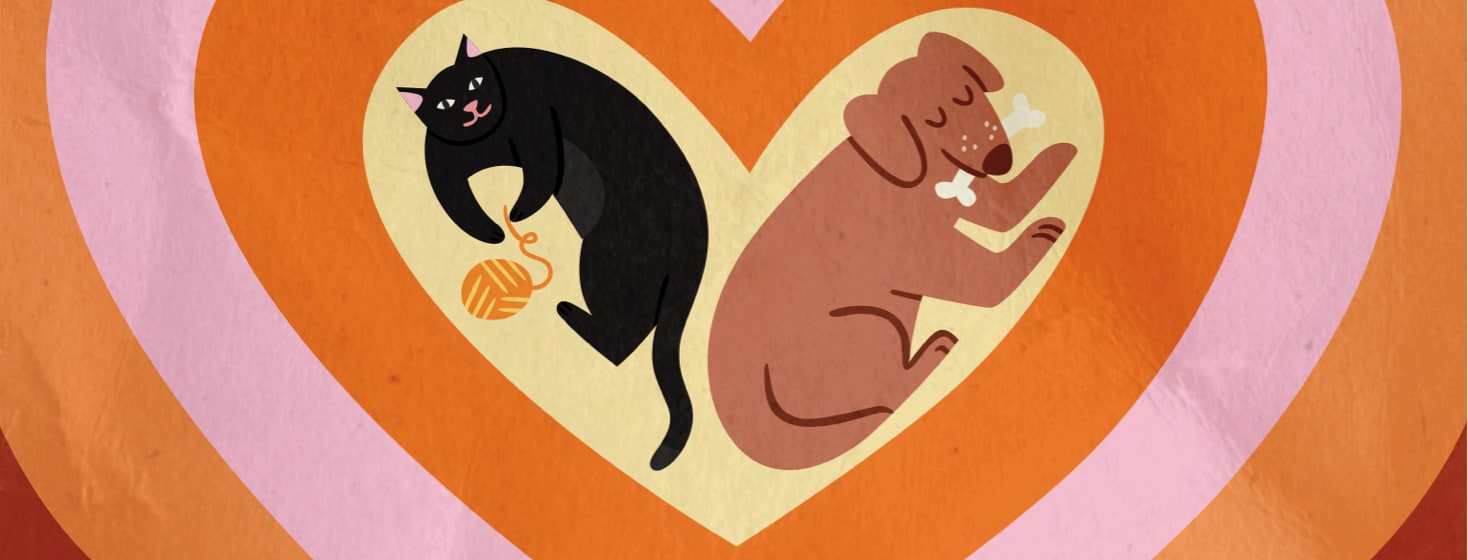Who Knew Cats Are SMA Friendly?
Throughout my childhood, dogs were a constant presence in my life. From Golden Retrievers to Yorkies and Chihuahuas, I was surrounded by faithful companions who brought immense joy and comfort.
Considered myself a dog person
I cherished each of these furry friends, but as I grew older, I began to notice certain limitations in my ability to care for them. My spinal muscular atrophy (SMA) made it difficult for me to engage in some activities with the larger dogs. I couldn't get on the floor to play with them or throw a ball very far. While these limitations didn’t seem to bother the dogs, it left me feeling a bit disheartened, knowing that I couldn’t bond with them in the ways I had hoped.
Despite these challenges, I have always loved dogs and currently have three of my own. I’ll always be a dog mom as long as I’m earth side. Over time, I’ve found ways to adapt to my condition and be more involved in their care. From finding creative ways to play with them to ensuring they receive the affection they need, I’ve made it work. Yet, there was still a part of me that longed for a different kind of connection—one that was more physically accessible.
Tring a kitten for the first time
This longing led me to consider adopting a kitten. My siblings all have cats, and I’ve always enjoyed interacting with them during short visits. After losing my beloved dog Miley last year, I felt the absence of a fur baby in my life more acutely than ever. I knew I was ready to welcome another pet into my home, and this time, I decided to take the leap with a cat.
In July, I adopted Karma, a black Bombay cat from a local shelter. From the moment I brought her home, I knew I had made the right decision. Karma quickly adapted to my wheelchair and surprised me by scrambling up my leg onto my lap when I called her. This simple act was a revelation to me. I didn’t need to ask for help to interact with her; she came to me on her own. It made me realize just how disability-friendly cats can be.
I can mange my cat's care independently
Unlike dogs, who often require assistance to be lifted or moved, Karma is able to jump onto my lap without knocking me over or needing help. I can set her food and water on a table where she can easily reach it, and I can manage her care independently. Her toys are also much more accessible for someone with my condition. Many of her toys are lightweight and come attached to a stick, making it easy for me to play with her without straining myself.
This experience has been nothing short of astonishing. While I will always be a dog lover and continue to have dogs in my life, I’ve discovered a new appreciation for how cats can offer a different kind of companionship—one that is more suited to my physical abilities. I may be late to the game, but I’m so glad I’ve arrived.
Perfect companionship for me
Having Karma has been a true joy. It’s empowering to have a pet that I can care for and raise with minimal assistance. The bond we share is incredibly special, and it has reminded me of the profound impact animals can have on our lives. For those of us with SMA, or any disability, the companionship of a pet can be a powerful tool in combating feelings of depression and loneliness. Karma has become more than just a pet; she’s a best friend, and I’m grateful every day that she’s part of my life.

Join the conversation